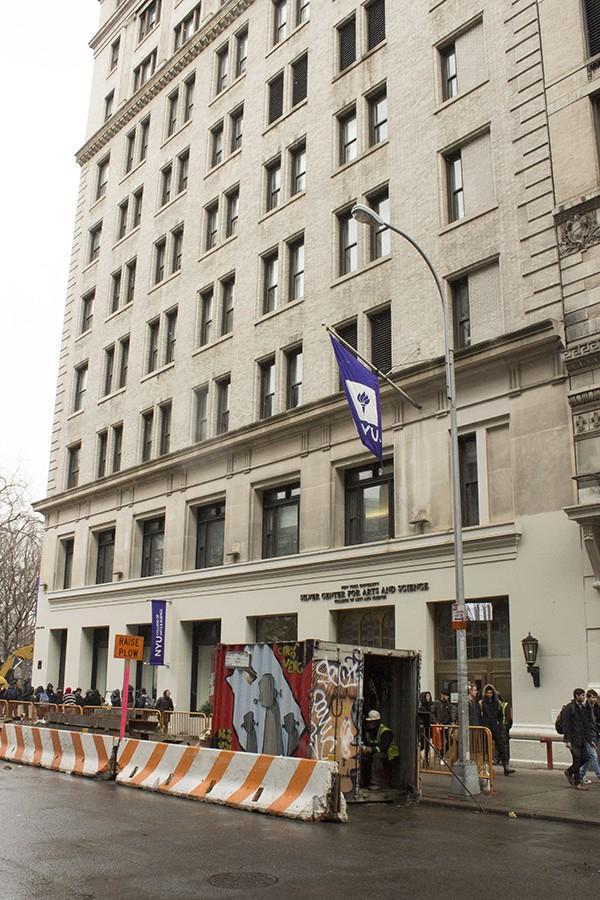Latino Representation in Faculty Focus of New GSAS Partnership
NYU’s Graduate School of Arts and Sciences, located in the Silver Center, is participating in a grant that strives to increase the number of Latinos receiving doctoral degrees.
February 9, 2016
The NYU Graduate School of Arts and Science is making efforts to increase the number of Latino humanities professors in colleges and universities across the United States. The new push comes as the result of a partnership with the University of Pennsylvania’s Graduate School of Education’s Center for Minority Serving Institutions made possible by a $5.1 million grant from the Andrew W. Mellon Foundation.
UPenn’s Pathway to the Professoriate program will prepare 90 undergraduate latino students for Ph.D. programs, and GSAS will help develop curriculum and strategies they can use as support when pursuing their graduate studies. Additionally, GSAS will provide individualized mentorship opportunities for latino students who are admitted to NYU for graduate school.
During an interview with student organizations last week, president Andrew Hamilton said introducing initiatives like this to increase diversity among faculty is critically important.
“As we prioritize increasing faculty diversity, one of the things we’ve got to do is to make sure that we take a holistic approach to the problem and ensure that the number of scholars from minority backgrounds that are coming through into the pools for potential recruitment is an increasing number,” Hamilton said.
Ulrich Baer, professor of German and comparative literature and vice provost for faculty, arts, humanities and diversity, stated that the program is mainly in partnership with UPenn, but four other research institutions and three Hispanic Service Institutions are participating as well. These include Northwestern University, University of California Berkeley and University of California Davis.
“If you look at Ph.D. programs, they tend to recruit students from relatively limited schools,” Baer said. “[NYU] could create a number of cohorts to diversify the student population.”
Lack of diversity among professors at NYU has continually been a concern among the student body, most recently brought up at a university-wide discussion with former President John Sexton on Nov. 18. In addition, the Black and Brown Coalition at NYU specified in their list of demands to the university that administrators must make an effort to increase faculty members of color among the various colleges.
CAS sophomore and Demands Chair for the Black and Brown Coalition at NYU, Juan Calero, said that he hopes the partnership will create a much needed network of support for Latinos in higher education.
“Latinos need to see themselves at least somewhere in their field of study,” Calero said. “Representation is very important.”
Amalia Córdova, Gallatin faculty member and assistant director of NYU’s Center for Latin American and Caribbean Studies, is a Mellon Grant Fellow. Professor Córdova stated that she believes NYU’s partnership with the Mellon Foundation is aimed for diversity and increasing academic opportunities for underrepresented groups.
“It’s not a one-shot solution,” Córdova said. “It should bolster conversation. I hope to see a continued and sustained commitment in the academic and professional field.”
Baer said that five years is a realistic timeline for Mellon Foundation’s goal to be reached, and that the program will positively influence the lives of the fellows and other students of color who will eventually be their students.
“The program will strengthen students’ abilities to get the best trainings in doctoral programs,” Baer said. “It does make a difference who your teachers are. It does make a difference who is standing in front of the class.”
Email Yeho Hwang at [email protected].















































































































































